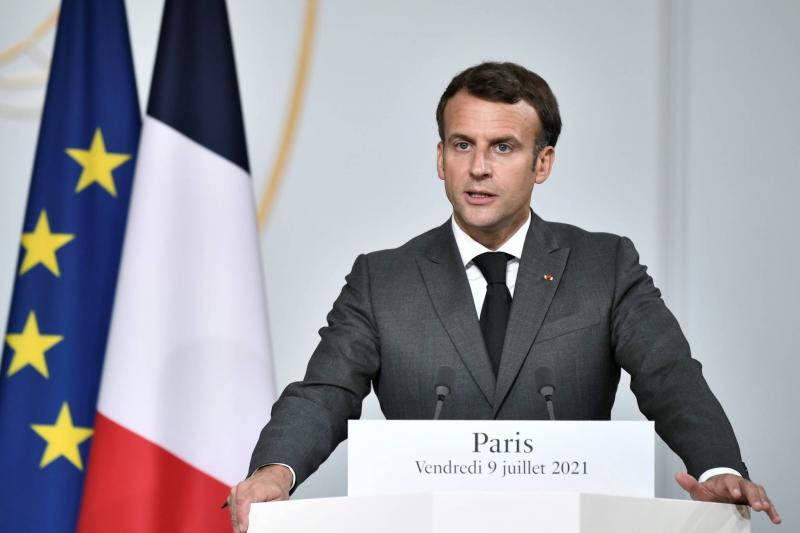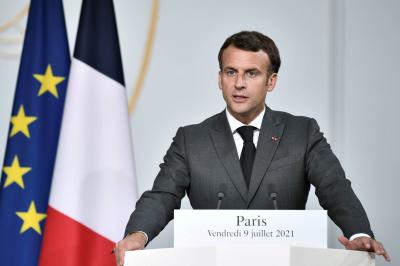French President Emmanuel Macron called on Iran, during a phone call on Monday with new Iranian President Ebrahim Raisi, to "immediately put an end to all nuclear activities that continue in violation" of the 2015 nuclear agreement, emphasizing the need to resume the Vienna talks "swiftly." For his part, the Iranian president underscored the necessity of ensuring that the negotiations "preserve the rights" of the Islamic Republic.
During the phone call, Macron urged Tehran to "quickly resume negotiations in Vienna with the aim of finalizing them," to which the Iranian president responded that these negotiations must guarantee "Tehran's rights," according to the Iranian presidency.
An Iranian presidential statement noted that Raisi stressed in his call with Macron that "in any negotiation, the rights of the Iranian people and the interests of our nation must be preserved." Raisi also affirmed his country’s seriousness in "maintaining deterrence" in the Gulf waters and the Sea of Oman, following Western accusations of Iran being behind an attack on an oil tanker operated by an Israeli businessman in the Arabian Sea, which Tehran denies, warning that it will respond to any military "adventure" targeting it.
During the call with Macron, Raisi stated that "the Islamic Republic is very serious about securing safety and maintaining deterrence in the Persian Gulf and the Sea of Oman and addressing the factors that deprive the region of security," according to the Iranian presidency.
The new president of the Islamic Republic emphasized the necessity for the United States and European countries to respect their commitments under the agreement concerning Iran's nuclear program signed in Vienna in 2015. Iran reached an agreement with six major powers (the United States, Britain, France, Russia, China, and Germany) regarding its nuclear program in 2015 after years of tension and difficult negotiations.
The agreement allowed for the lifting of many economic sanctions that had been imposed on Tehran, in exchange for limiting its nuclear activities and ensuring the peaceful nature of its program. However, its provisions have been essentially nullified since former U.S. President Donald Trump unilaterally withdrew from it and reinstated harsh sanctions, leading to a severe economic and living crisis in the Islamic Republic.
The new U.S. President Joe Biden, who took office in early 2021, has expressed his intention to return to the agreement on the condition that Iran returns to respecting its commitments, which it began to roll back from 2019 in response to the U.S. withdrawal. Iran and the major powers, with indirect U.S. participation, are conducting negotiations in Vienna aimed at reviving the agreement officially known as the "Joint Comprehensive Plan of Action." The parties have held six rounds of talks between April and June, without setting a date for a new round. Iranian officials previously confirmed that the resumption of negotiations would be linked to the new government's official assumption of duties.




